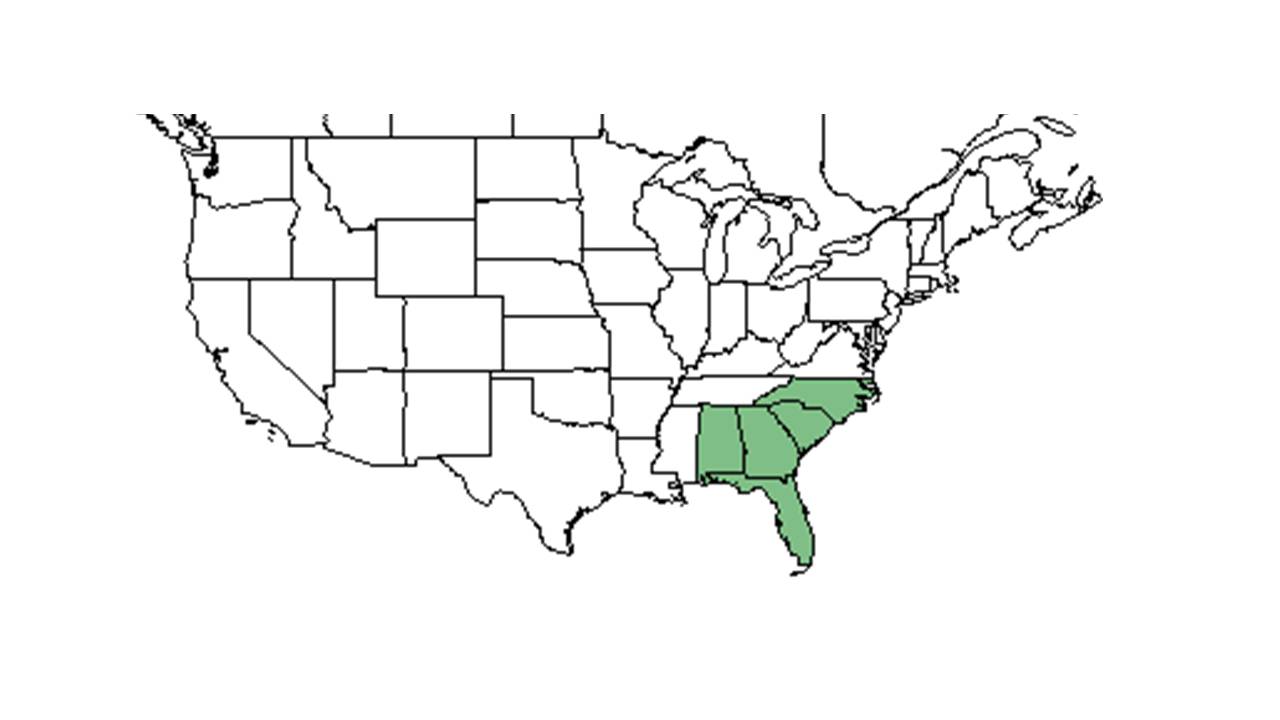Difference between revisions of "Euphorbia curtisii"
(→References and notes) |
|||
| Line 39: | Line 39: | ||
==Photo Gallery== | ==Photo Gallery== | ||
==References and notes== | ==References and notes== | ||
| + | Florida State University Robert K. Godfrey Herbarium database. URL: [http://herbarium.bio.fsu.edu http://herbarium.bio.fsu.edu]. Last accessed: June 2014. | ||
| + | |||
| + | Collectors: Robert K. Godfrey and Roy Komarek. | ||
| + | |||
| + | States and Counties: Florida: Jefferson, Leon, and Wakulla. Georgia:Thomas. | ||
Revision as of 15:20, 13 July 2015
| Euphorbia curtisii | |
|---|---|

| |
| Scientific classification | |
| Kingdom: | Plantae |
| Division: | Magnoliophyta - Flowering plants |
| Class: | Magnoliopsida – Dicotyledons |
| Order: | Euphorbiales |
| Family: | Euphorbiaceae |
| Genus: | Euphorbia |
| Species: | E. curtisii |
| Binomial name | |
| Euphorbia curtisii Engelm. | |

| |
| Natural range of Euphorbia curtisii from USDA NRCS Plants Database. | |
Contents
Description
Common Name: Curtis' spurge
Distribution
Ecology
E. curtisii was absent before herbicide treatments near the end of the growing season but present after. This might be because of increased availability of resources.[1]
Habitat
This has been found in wet pine flatwoods, in Longleaf pinelands and savannas (FSU Herbarium). This has also been spotted in human disturbed areas such as along roadsides and in edges of flatwoods (FSU Herbarium).
Phenology
Seed dispersal
Seed bank and germination
Fire ecology
Pollination
Use by animals
Diseases and parasites
Conservation and Management
Cultivation and restoration
Photo Gallery
References and notes
Florida State University Robert K. Godfrey Herbarium database. URL: http://herbarium.bio.fsu.edu. Last accessed: June 2014.
Collectors: Robert K. Godfrey and Roy Komarek.
States and Counties: Florida: Jefferson, Leon, and Wakulla. Georgia:Thomas.
- ↑ Bohn, K. K., P. Minogue, et al. (2011). "Control of invasive Japanese Climbing Fern (Lygodium japonicum) and response of native ground cover during restoration of a disturbed longleaf pine ecosystem." Ecological Restoration 29: 346-356.